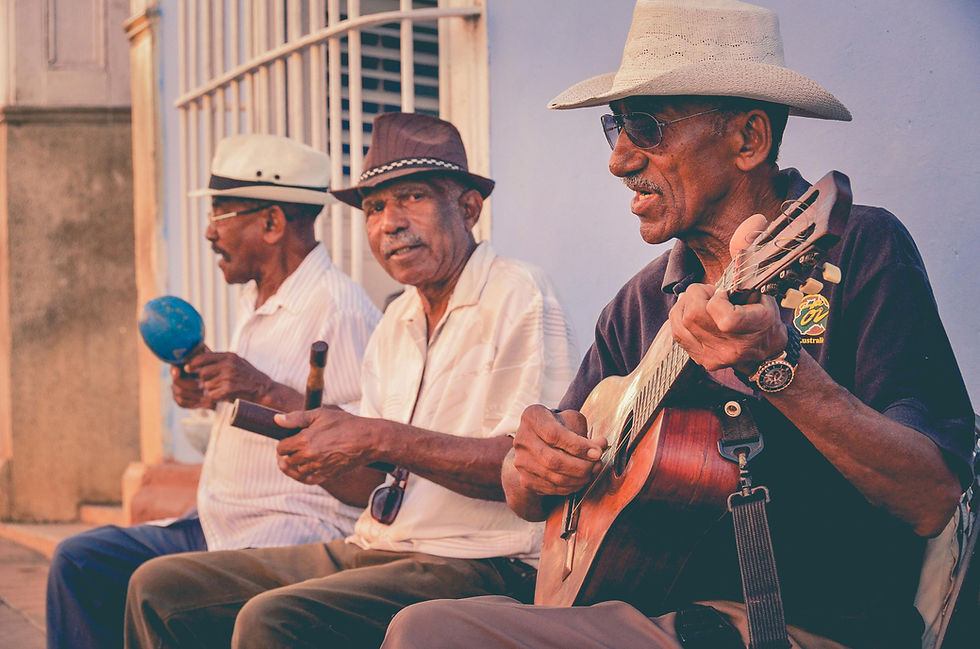Sanctions on Cuba under The Trump Administration
- Feb 22, 2021
- 3 min read
Updated: Dec 11, 2023
By Amanda Gonzalez Garcia
Delivering a final blow before leaving office, former President Donald J. Trump authorized a reinstatement of full sanctions against Cuba.
On Jan. 11, 2021, former Secretary of State, Mike Pompeo stated the following via his Twitter account: “Cuba’s continued support for terrorism in the Western Hemisphere must be stopped. Today the United States is returning Cuba to the State Sponsors of Terrorism list to hold the Castro regime accountable for its malign behavior.”
While in office, President Trump was adamant about weakening the communist regime of Cuba. Trump reversed many of the policies under the Obama administration, making it much harder to travel and send remittances.
The Obama administration had restored relations with the island in 2015 as a way to restore diplomatic relations with Cuba after 54 years of ‘separation.’
“We’ve been a part of different blocks of nations in the hemisphere, and we will continue to have profound differences about how to promote peace, security, opportunity, and human rights, but as we normalize our relations, I believe it can help foster a greater sense of unity in the Americas...” said Obama.
On Jan. 12, 2021 Cuba joined North Korea, Syria, and Iran onto the “state of terrorism sponsorship” list. North Korea has been on the list since 2017; Syria, since 1979 and Iran since 1984.

Under a formal review process, the current administration may reverse the decision.
As a candidate, Biden said he did not believe Trump’s move advanced human rights and democracy.
“For their part, Cubans are reportedly hopeful for a return to the Obama-era thaw,” said Biden.
The Trump administration had prohibited commerce with business either by or operating under Cuban military, intelligence agencies, and security services since 2017. Also, it banned Americans from travelling to Cuba either individually or for educational or cultural exchanges.
Just months later, the administration threatened to pull its embassy staff from Havana after U.S. diplomats suffered from unexplainable injuries that included hearing loss and cognitive impairment. This incident caused the processing of most visas to be suspended.
The Cuban government denied any involvement in this incident and urged for the United States to not cut any diplomatic ties. The U.S. National Academies of Sciences, Engineering and Medicine found the most plausible explanation to be a targeted and pulsed radio frequency.
While halting all individual travel to the island, the Trump administration also prohibited cruise ships and other watercrafts to sail between the United States and Cuba in June of 2019. Flights from the United States to Cuban cities except Havana were banned.
Under the flight sector, private charter flights were also included as travelers from the United States were blocked from staying at establishments that were linked to the regime. This was accomplished as an effort to keep United States dollars away from a tourism industry that would fund the Cuban regime.
Dr. Leah Blumenfeld, professor of political science, told The Buccaneer that the Trump-enforced travel ban is even more restrictive than what was in place under the George W. Bush administration.
“This cuts off humanitarian and educational exchanges, which affects the people more than government,” said Blumenfeld. “The limitations on business connections also undercuts current efforts within the Diaz-Canel regime to include more market-based elements in the Cuban economy, and for U.S. businesses to engage with any resulting entrepreneurial developments.”
In 2018, the United Nations estimated these sanctions cost Cuba over $130 billion.
This raises the question as to what sanctions will be maintained by the new Biden administration. And, what can this mean for those on the island and their family members? This can also affect money transfers to those in Cuba which will weigh heavily on those impoverished islanders who rely on this method of financial assistance.
Junior Daliana Delgado, a history major who is minoring in political science, is troubled by the new sanctions.
“It mostly hurts the people rather than the communist regime,” she said. “This is especially hard for people like me who have their entire family in Cuba and who aren’t from Havana.”








Comments